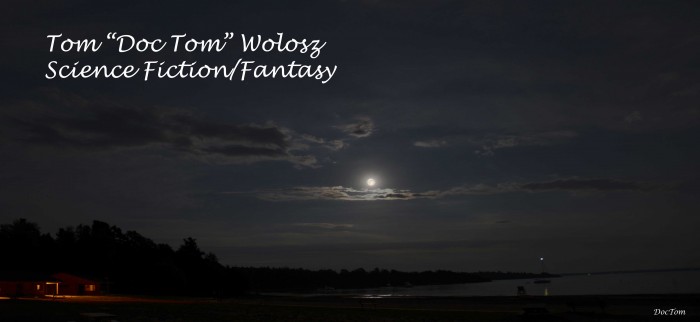A friend of mine once posed the question: “Do you think writers start out intending to write a great book?” Now, obviously, he meant “great” as in critically acclaimed, and having the potential to still be read long after the author has gone to that great remainder pile in the sky. I thought about it and I think the answer is no. I base this on my own experience (not to hubristically imply that my book is by any means “great”). When you start on a book it’s because you have a story you want to tell, and you want to write it.
Now I’m sure there are some who write because they think they can make a lot of money (and, of course, some do). Years ago I remember reading (although I don’t remember where) that a writer has to really want to write for the sake of writing. While that may be true, those who are just in it for the money can do a real yeoman’s job of it if they possess a bit of talent. This is evidenced first by all the potboilers published every year – often they’re quick, fun reads, but like fast-food they’re generally quickly forgotten. There are also many best sellers which are formulaic (still fun reads), but quickly forgotten too. I have a friend who tells a great story. When he was an undergraduate a best-selling author visited his college and gave a talk. When the time came for questions from the audience there was silence, and the writer – apparently a rather brash fellow – looked around, pointed directly at my friend and demanded, “Ask me a question!” Having been put on the spot, my friend was taken aback, and all he could think of was the rather standard, “What inspires you to write?” The writer fished out his wallet, waved his platinum credit card at the audience, and said, “This does.” What more can be said?
You’re probably asking – “Don’t all writers want to make money?” Sure – you’ve got to eat, right? So unless you’re independently wealthy it helps to have an income from your writing, and, of course, making money from your writing just means people are buying – and reading – your books, which is the whole point. But there is a difference between writing the potboiler, the formulaic, and something else – it’s the need to tell a unique story.
Unique doesn’t necessarily mean a story you’ve never read before – there were plenty of plays about monarchs and their dysfunctional families before, and since, Shakespeare wrote Hamlet and Macbeth, but the difference is that the characters are real in the sense they have human faults and foibles, they suffer and agonize. They tell us something about the human condition. Dickens and Hugo wrote about the lives of the poor, but they also told us a lot about their times. Even Tolkien tells us about sacrifice (remember, after all he goes through, poor old Frodo ends up with the short end of the stick). J. G. Ballard’s stories seem to deal with people detached from society, while Philip K. Dick always appeared to be searching for an answer to the question: “What is reality?”
So I think the books that last give you a viewpoint into something you are unfamiliar with. They take you somewhere you’ve never been before. They make you look at things in a different way, often a way very alien to yourself. They give you insight into the human condition.
What does this have to do with my writing, or yours? It just points to a difference in approach. It might be fun to write a “Star Trek” novel – everybody has their own great story involving their favorite characters fighting Klingons or whoever, but how’s that different from lots of sci-fi books and movies that went before? What made the show different, and lasting? Well, as compared to all those other books and movies which just concentrated on aliens, space ships, shoot-em-ups, and other clichés from the “Boy’s Big Book of Adventure”, it presented a very unique vision of the future. There were lots of questions asked, lots of themes explored. It presented a very optimistic view of the future. And yes, despite the beehive hairdos along with the mini-skirt and go-go boot uniforms (it was, after all, the 60s), it even had a big place for intelligent, dynamic women. Think about it.
So in the end it’s not what you write about, but how you write about it that makes the difference between a great and an average book. Do writers start out thinking to do that? No, it’s just the story they need to tell.
More along these lines in the next installment.
